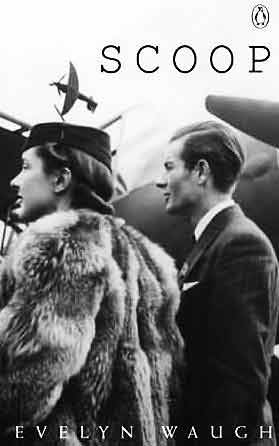Scoop! How newspapers find exclusive stories
Evelyn Waugh's Scoop from 1938 satirised journalism with a naive William Boot sent to foreign climes to report on a war. He works for the fearsome Lord Copper, proprietor of the Daily Beast. This was based on Waugh's experience in the early 1930s on the Morning Post. He covered Mussolini's Abyssinian war in the company of Bill Deedes - reporting for the Daily Mail - and Deedes was said to have inspired the character of William Boot in Waugh's 1938 novel Scoop. Deedes chose At War with Waugh: the real story of 'Scoop' as the title of one of his volumes of autobiography in 2003. These pages by Tony Quinn explore how reporters go about finding their scoops.
What makes a scoop?
A scoop is a news story that:
- has not been published before;
- is exclusive to a publication; and
- is an important story.
The term is rarely actually seen in a newspaper, the preferred term in print is 'Exclusive', as in this Daily Mail claim of a scoop for its ‘splash’ (the front page lead).
True scoops are comparatively rare but they are vital to a paper - and the journalists who find them - maintaining their reputation. A story may sometimes claim to be a scoop when:
- It contains 'scoopy lines'; in other words the story is in other papers, but specific facts are only known by one publication.
- It’s a 'scoopette' – a scoop, but the story is not very important.
- It’s a ‘scoop of interpretation’: the facts are all available but one paper has put them into a context that puts a different angle on a story.
The next page explores where news comes from ...




